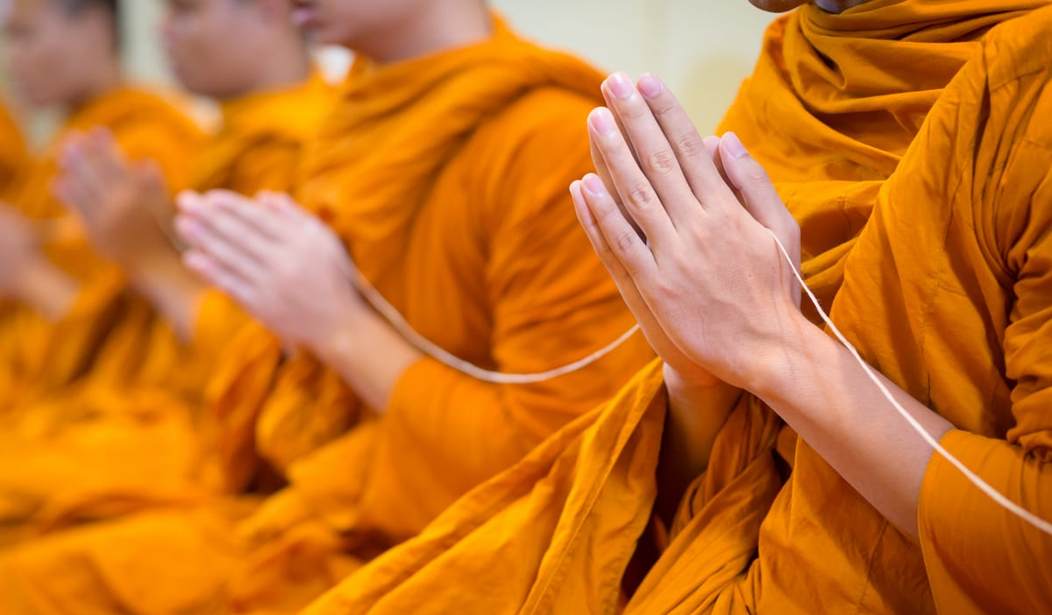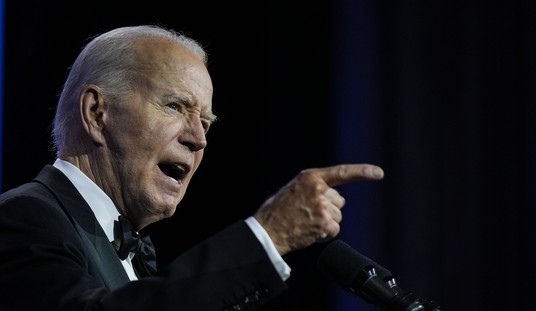Directly after the Paris attacks, the usual suspects posted a famous quotation from the Dhammapada:
In this world
Hate never yet dispelled hate.
Only love dispels hate.
This is the law,
Ancient and inexhaustible.
This is a legitimate quote — or as legitimate as any quote from the Buddha. (Although it’s kind of a horrible translation. What the Pali verse really says is more like “hate can’t be dispelled with more hate, it can only be dispelled by ceasing to hate.”)
It’s usually quoted, however, by man-bun Buddhists who think of Buddhism as Upper West Side liberal pacifism with incense and temple bells.
Real Buddhism is more complicated than that.
Buddhism arose because a young prince named Siddhartha, in what’s now Nepal, looked around and realized that he and everyone he knew were usually unhappy about something, annoyed by something, upset about something. These somethings were anything from a mosquito bite to realizing that they were doomed to die. He was a sensitive, compassionate guy and so he resolved to find a way to fix all this unhappiness. (The Sanskrit word is duhkha, which is usually translated as “suffering.” We put a lot of additional connotations on the word suffering, though. Think, instead, of duhkha as when something is unsatisfactory.) He left home, and after six years of working really hard and following some blind alleys, he saw through duhkha and the roots of duhkha, and spent the rest of his life teaching other people how to be freed of duhkha, too. He never claimed to be a holy man or a saint, he was just “the guy who woke up” — the Buddha.
So, how does someone who is awake feel? He still feels compassion and he wishes everyone else well — he wants them to suffer less, too. So, he taught people to avoid killing, to avoid sleeping around, not to take what isn’t given to them freely, and to avoid misusing drugs (like alcohol), not because doing those things were somehow evil, but because doing those things makes you, and everyone around you, suffer. When your eyes are open, you see that for yourself, and so you avoid doing them because they cause suffering.
The hard part, though, is the that real goal is to reduce suffering, and strict rules always seem, in this world, to have exceptions. I wrote a couple of years ago about needing to have my cat “put down” — which is to say I had the vet kill her so she wouldn’t be in pain any longer. If you have a broken bone, setting it can be very painful. If you have cancer, the effects of surgery and chemotherapy and radiation are extremely unpleasant.
The result, though, is to reduce suffering overall.
So, Paris happened. Hipsters and liberals quote the Dhammapada to say “we shouldn’t respond to this with hate and anger and violence because that won’t stop the haters from hating.” And they’re right — it won’t stop the haters from hating, and hating hurts us, too — it eats us up inside, which only makes more suffering.
But Daesh (the Arabic equivalent of ISIL) is also causing suffering — great suffering. It’s not incorrect to take steps to stop that suffering, cautiously, with our eyes wide open. Sometimes, to reduce great suffering, some pain and harm are necessary.










Join the conversation as a VIP Member